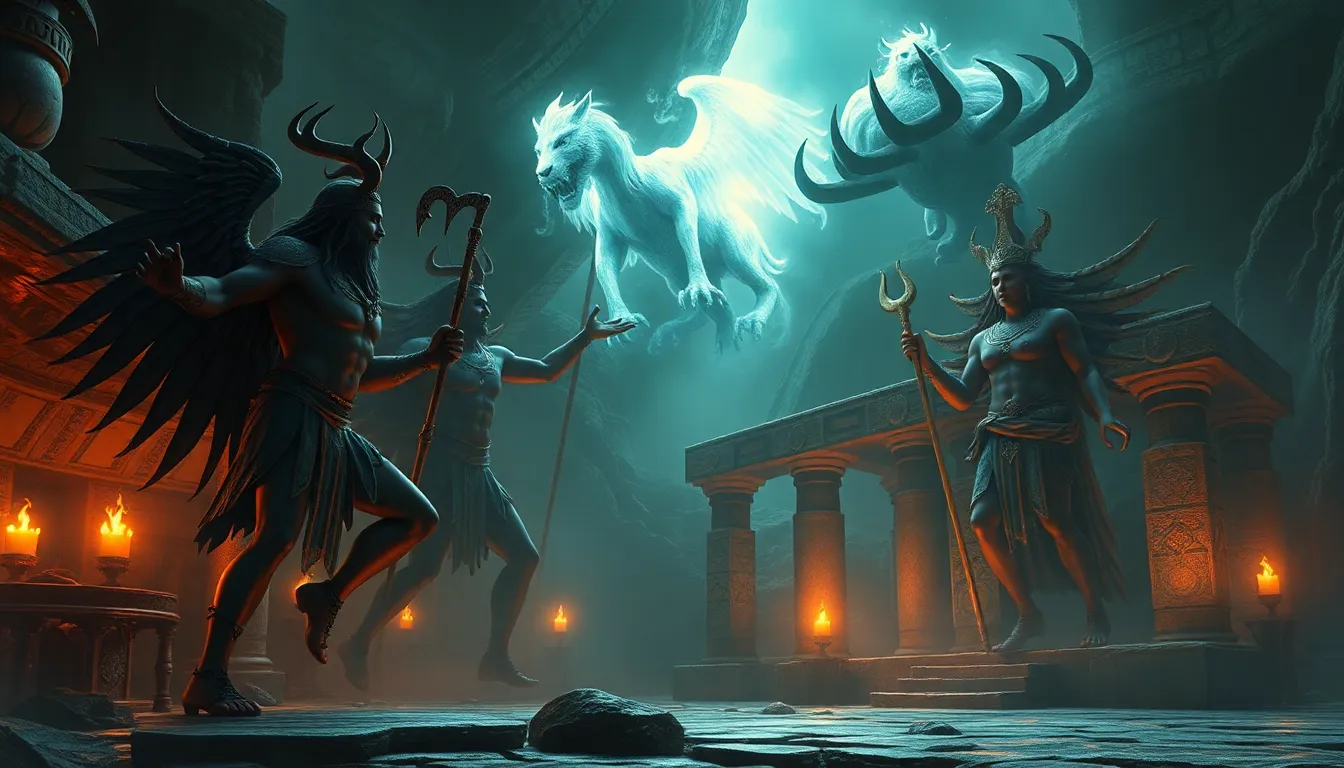Greek Mythology and the Concept of Balance
In Greek mythology, balance is a central theme that governs the natural order of the world. It is intricately woven into the tapestry of myths, symbolizing harmony, justice, and equilibrium.
The Balance of Power among the Gods
The Greek pantheon is a complex web of divine beings, each representing various aspects of life and nature. The concept of balance among these powerful entities is crucial in maintaining order and preventing chaos. For example, the rivalry between Zeus, Poseidon, and Hades, the three powerful brothers who ruled the sky, sea, and underworld respectively, demonstrates the delicate equilibrium of power in the heavens.
The Dualities in Greek Mythology
Many Greek myths explore the theme of balance through dualities such as light and darkness, good and evil, and order and chaos. The tale of Persephone, who spends half the year with her mother Demeter in the world above and the other half with Hades in the underworld, reflects the balance between life and death, growth and decay.
Nemesis: The Divine Enforcer of Balance
In Greek mythology, Nemesis is the goddess of retribution and vengeance, ensuring that mortals and gods alike face consequences for their actions. She maintains balance by punishing hubris and excessive pride, thus restoring harmony and justice in the world.
The Lesson of Balance in Greek Mythology
Ultimately, Greek mythology teaches us that balance is essential for the sustainability of the cosmos. By respecting the interconnectedness of all things and honoring the delicate equilibrium of power, dualities, and justice, we can strive towards a harmonious existence both individually and collectively.
FAQs about Greek Mythology and the Concept of Balance
What is the concept of balance in Greek mythology?
In Greek mythology, balance is a fundamental principle represented by concepts like equilibrium, harmony, and justice. It involves maintaining a measure of order among opposing forces or elements to ensure stability and fairness in the world.
How is the concept of balance depicted in Greek mythology?
The concept of balance in Greek mythology is often portrayed through various myths and stories featuring gods and goddesses who embody different aspects of balance. For example, goddess Themis symbolizes divine law and order, while the Fates represent the idea of destiny and inevitability.
Why is the concept of balance important in Greek mythology?
Balance in Greek mythology serves as a moral compass, guiding characters and deities to make decisions that uphold justice and harmony. It highlights the consequences of imbalance, such as hubris leading to downfall, or the disruption of natural order resulting in chaos.
How does the concept of balance influence human behavior in Greek mythology?
In Greek mythology, individuals are often challenged to maintain a balance between different virtues and vices, facing moral dilemmas that test their character. The stories emphasize the importance of moderation, humility, and respect for cosmic balance.



